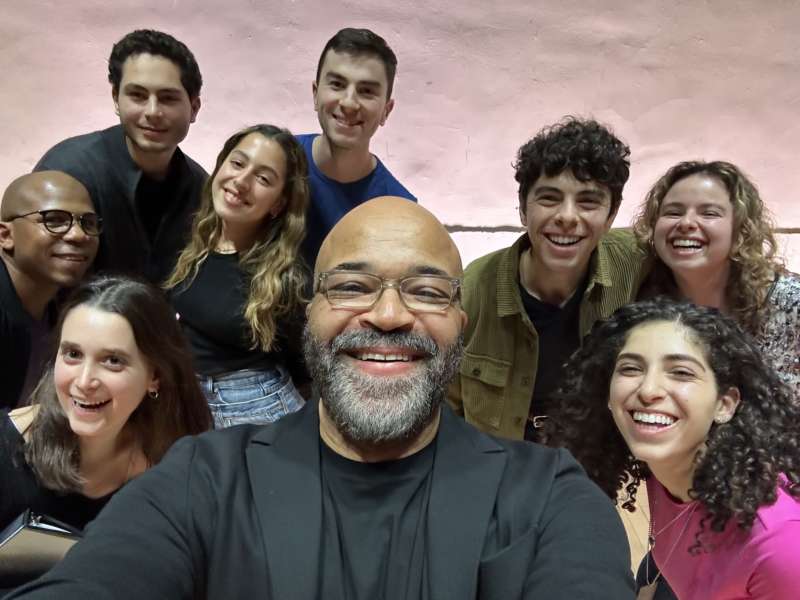Open to Public
Domestic Violence Project: Streetcar Named Desire, NY Public School District #4
Fri, May 18.2018
About the play
-
A Streetcar Named Desire by Tennessee Williams
The Domestic Violence Project presents scenes 3 and 4 from Tennessee Williams’ A Streetcar Named Desire, depicting the infamous poker night and its aftermath in Williams’ iconic American play: Stanley and the boys are up late playing poker in small apartment where he lives with his wife, Stella. When Stella and her sister Blanche arrive home, a violent altercation ensues, and when the drunken Stanley becomes violent, his friends are forced to pin him down while Stella retreats to a neighbor’s home. Stanley’s breaks down and begs Stella to come back to him, which she does. The next day Blanche confronts Stella over Stanley’s behavior and, much to her surprise, learns that Stella does not wish to leave Stanley.
Explore Projects
-
Caregiving & DeathThe Nurse Antigone
A groundbreaking project by and for nurses, The Nurse Antigone presents dramatic readings of Sophocles’ Antigone on Zoom—featuring professional actors and a chorus of frontline nurses—to help frame powerful, guided discussions about the unique challenges faced by nurses before, during, and after the COVID-19 pandemic.
-
 War & Mental HealthTheater of War: Hector, Andromache, and the Death of Astyanax
War & Mental HealthTheater of War: Hector, Andromache, and the Death of AstyanaxTheater of War: Hector, Andromache, and the Death of Astyanax presents live, dramatic readings of selections from Homer’s Iliad, Book VI and scenes from The Trojan Women by Euripides—featuring acclaimed actors and a Chorus of students, from a variety of backgrounds, whose lives have been impacted by war—to help frame powerful, healing dialogue about the human cost of war, centered on the suffering of children and civilians. The project uses ancient texts that explore and depict the dehumanization of war to create a vocabulary for openly discussing challenging and divisive subjects, with the aim of generating compassion, empathy, moral repair, understanding, and positive action.
-
 Political ViolenceActs of Violence
Political ViolenceActs of ViolenceActs of Violence presents scenes from Seneca's Thyestes, a Roman tragedy that was written during the gruesome reign of Nero, as a catalyst for town hall discussions about the impact of political violence upon individuals, families, caregivers, health and human rights advocates, communities, and nations.